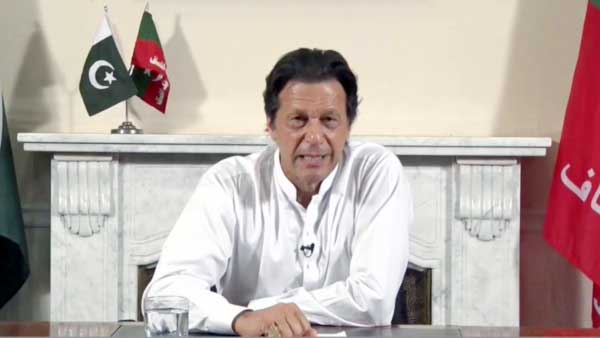Pakistani Foreign Minster Shah Mahmood Qureshi made history at the United Nation General Assembly (UNGA) by giving a speech in Urdu, Pakistan’s national language. However, the contents of speech were almost the same as last year. The same was the case with Indian Foreign Minister Sushma Swaraj, who accused Pakistan of “harbouring terrorists” and “masking malevolence with duplicity.” Qureshi attacked India saying, “Kulbhushan Jadhav is an example of India exporting terrorism to its neighbouring countries”.
The foreign ministers of India and Pakistan were supposed to meet on the sidelines of the high-level debate of the UNGA. India cancelled the talks offered by Pakistan’s new Prime Minister Imran Khan following an attack that Swaraj said had killed three Indian soldiers. Also, Pakistan recently issued postage stamps commemorating slain Kashmiri militant Burhan Wani, which proved to be the final nail in the coffin of Pak-India dialogues.
During her speech at the UNGA, Swaraj referred to the Wani postage stamps saying “talks cannot be pursued in the midst of ‘terrorist bloodshed’ with a nation that ‘glorifies killers’ and ‘refuses to see the blood of innocents.’”
During an informal SAARC ministerial meeting in New York, Swaraj left immediately after her address, leaving the meeting halfway and avoiding Qureshi. Accepting an invitation and later taking a U-turn sends a signal that the Indian political leadership is unable to sustain the internal pressure of domestic politics imposed by the media and other pressure groups, who were questioning India’s decision to go ahead with talks with the Pakistan government.
Similarly, earlier this month, the Supreme Court of Pakistan allowed Hafiz Saeed and his banned organisations to continue to operate freely. Even though it is judicial ruling and does not represent the policy of the government, Pakistan has to take extra measures to win the confidence of international stakeholders as well as its neighbours.
Qureshi was also questioned about troubled US-Pakistan relations in every media interaction he held. “Relationship had recently been fractured. However, Pakistan intends to continue its engagement with the US and manage the relationship by concentrating on points of convergence,” Qureshi said, while briefing the media at the Pakistani Embassy in Washington.
Qureshi met his US counterpart US Secretary of State Mike Pompeo on October 2nd. Pakistan is not expecting much out of this meeting as many in Washington believe that the US-China Cold War is now playing out in Pakistan.
Two months ago, Pompeo took a clear position on Pakistan-China relations and the Pakistan China Economic Corridor (CPEC) by saying, “Make no mistake. We will be watching what the IMF does; there’s no rationale for IMF tax dollars and associated with that American dollars that are part of the IMF funding, for those to go to bail out Chinese bondholders or China itself.”
While India is moving ahead with the 2+2 dialogue with the US to cover a broad range of bilateral, regional and global issues of shared interest, Pakistan has invited Saudi Arabia to invest 10 billion dollars in the CPEC. However, despite Pakistan wishing otherwise, China is not yet willing or able to spend what it takes to completely replace America as Pakistan’s primary strategic partner.
On October 2, Qureshi met with US Secretary of State Mike Pompeo, US National Security Adviser John Bolton and next day he spoke at United State Institute of Peace (USIP). In all these engagements the US kept one agenda across the table: “How can you help us win the Afghan war?” Qureshi maintained his position that there is no military solution to Afghan’s problem which signals “sorry we can’t help you much”.
If US and Pakistan will not work on key issues like peace in Afghanistan, growing influence of China in Pakistan and bitter relations with India, tension between two countries will escalate over time. “No arm twisting. Normalise relations (with India), expand cooperation and then work together in resolving the Afghan dispute,” said a Pakistani expert in Washington, who did not wish to be identified, on the present state of US-Pakistan relations.
Geopolitics
Tough words for Pakistan: Introspection time for new government
Issue
Courtesy: South Asia Monitor | Date : 10 Oct , 2018
Rate this Article





